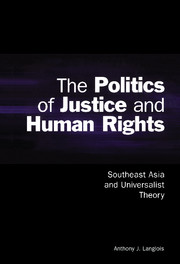Book contents
4 - Human Rights as Incompletely Theorised Agreement
Published online by Cambridge University Press: 05 July 2014
Summary
The need for there to be a reconceptualisation of the universality of human rights stems from the plurality of different approaches to questions of justice, morality and ethics. The language of human rights, in some instances, has failed to be sufficiently aware of such realities and has fallen into the trap of Western liberal triumphalism. The existing human rights discourse is often viewed as an unproblematic articulation of moral progress in the twentieth century, as allegedly demonstrated by near-universal state recognition of the UDHR and subsequent instrumentalities. This recognition, however, is often belied by state practice and is not representative of the values and traditions of non-state actors. As it stands, the human rights project exists as only one of a vast plurality of normative traditions. The issue for discussion is how the claim to universality should properly relate to this plurality.
The task of reconceptualisation can be divided into two parts. First, the plurality of human traditions and the local appropriation of the human rights discourse give rise to a multitude of different and sometimes antithetical philosophical, religious and ethical justifications for the human rights discourse. It is not possible to answer the questions ‘what are human rights?’ and ‘why do we have human rights?’ with a single account capable of gaining universal assent. This empirical reality suggests that the traditional philosophical approach to the discourse needs re-evaluation.
- Type
- Chapter
- Information
- The Politics of Justice and Human RightsSoutheast Asia and Universalist Theory, pp. 100 - 124Publisher: Cambridge University PressPrint publication year: 2001

